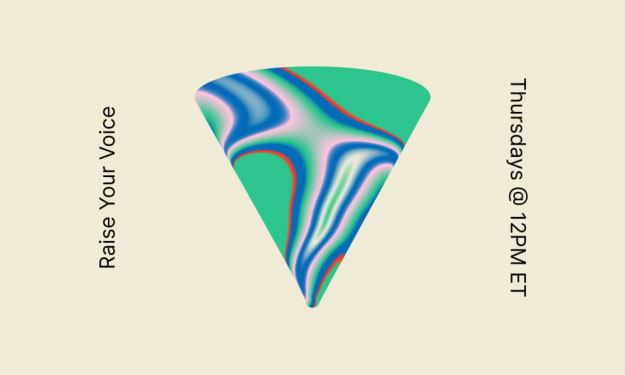The Endless Hiccups: The Unfortunate Tale of Charles Osborne
Endurance, Resilience, and the Search for Relief

Hiccups are a temporary annoyance for most people, lasting a few minutes or maybe an hour. But imagine enduring relentless hiccups for an astonishing 68 years. This was the reality for Charles Osborne, a man whose life became intertwined with an unusual affliction. Born in 1893, Osborne's hiccups began in 1922 after a farm accident. Despite seeking medical help and enduring various remedies, his hiccups persisted until their sudden halt in 1990. This blog uncovers Osborne's incredible story, explores the science behind hiccups, and highlights the ongoing quest to find a cure.
The Strange Journey Begins
Charles Osborne's life took an unexpected turn on June 13, 1922, following a minor mishap on a Nebraska farm. After falling, Osborne initially felt no ill effects. However, he soon found himself in the grip of uncontrollable hiccups. Medical experts theorized that the accident may have damaged a crucial part of his brain responsible for suppressing the hiccup reflex. Despite consulting numerous doctors and specialists, no cure was found for Osborne's persistent hiccups. He developed a unique breathing technique to minimize the noise, but the physical strain and constant jerking left him sore.
Living with Hiccups
Despite his enduring condition, Charles Osborne managed to lead a relatively normal life. He married twice, fathered eight children, and worked as a farm machinery salesman and livestock auctioneer. Osborne's cheerful demeanor and penchant for cracking jokes earned him a reputation as a happy-go-lucky individual. However, the hiccuping was always present, a constant reminder of his unique predicament.
Fame and Recognition
In 1978, after 56 years of relentless hiccups, Charles Osborne gained widespread attention. His story reached the media, and he became a familiar face on television shows like "The Tonight Show starring Johnny Carson." Osborne's perseverance and desire to find a cure resonated with people across the country. The Guinness World Records even recognized his remarkable achievement. Despite the outpouring of support and countless suggestions from well-meaning individuals, no remedy provided lasting relief.
The Science of Hiccups
Hiccups remain a mystery to medical professionals and scientists. The reflex action, similar to a knee jerk when tapped by a doctor's hammer, involves a signal traveling from the diaphragm to the brain and back. The phrenic nerve, an essential component of this process, connects the chest to the diaphragm. While the exact purpose of hiccups is still unclear, they are present in various mammals. Some theories suggest that hiccups may have served amphibians transitioning from underwater to air breathing, while others propose their role in helping infants clear excess air from their stomachs. However, the persistence of hiccups in humans without these evolutionary requirements remains a puzzle.
Seeking a Cure
Over the years, numerous remedies have been attempted to alleviate hiccups, but there is no universally effective treatment. Medications targeting the muscles and nerves involved in diaphragm spasms have been explored, but without conclusive evidence to support their efficacy. In recent times, a Japanese research group discovered a novel approach using high-concentration CO2 inhalation to trick the brain into prioritizing the perceived life-threatening emergency over hiccups. Traditional remedies, such as drinking water rapidly or experiencing a sudden scare, have also been known to interrupt the hiccup reflex. Driven by a patient's post-brain surgery hiccups, Ali Sifi, a neuro-intensivist, developed a device called the "Hickaway." This tool combinesthe effects of these traditional remedies by mimicking the action of drinking a thick milkshake and engaging the nerves involved in the hiccup reflex.
The Legacy of Charles Osborne
Charles Osborne's incredible journey finally came to an end in 1990 when his hiccups abruptly ceased. While he lived the majority of his life burdened by this perplexing condition, Osborne's perseverance and positive attitude inspired countless individuals. His story continues to be shared as a testament to the human spirit's resilience in the face of adversity. Osborne's remarkable feat of enduring hiccups for 68 years remains unparalleled, earning him a place in the annals of medical history.
The Quest for a Cure
While Charles Osborne's story is extraordinary, it serves as a reminder of the ongoing search for a cure for hiccups. Researchers and medical professionals continue to explore various avenues, hoping to unravel the mysteries behind this peculiar reflex. Understanding the underlying mechanisms and functions of hiccups may pave the way for more effective treatments in the future. The combination of scientific research, innovative approaches, and the resilience of individuals like Charles Osborne fuels the optimism that one day a definitive solution will be found.
Hiccups, a seemingly trivial annoyance for most people, can become a lifelong struggle for a few unfortunate individuals like Charles Osborne. His 68-year battle with persistent hiccups captures the imagination and highlights the enigmatic nature of this reflex. While medical science has yet to provide a definitive cure, Osborne's story serves as a source of inspiration and a reminder of the enduring human spirit. With ongoing research and innovative approaches, the hope remains that one day a solution will be found, bringing relief to those who suffer from this seemingly never-ending hiccup cycle.





Comments
There are no comments for this story
Be the first to respond and start the conversation.